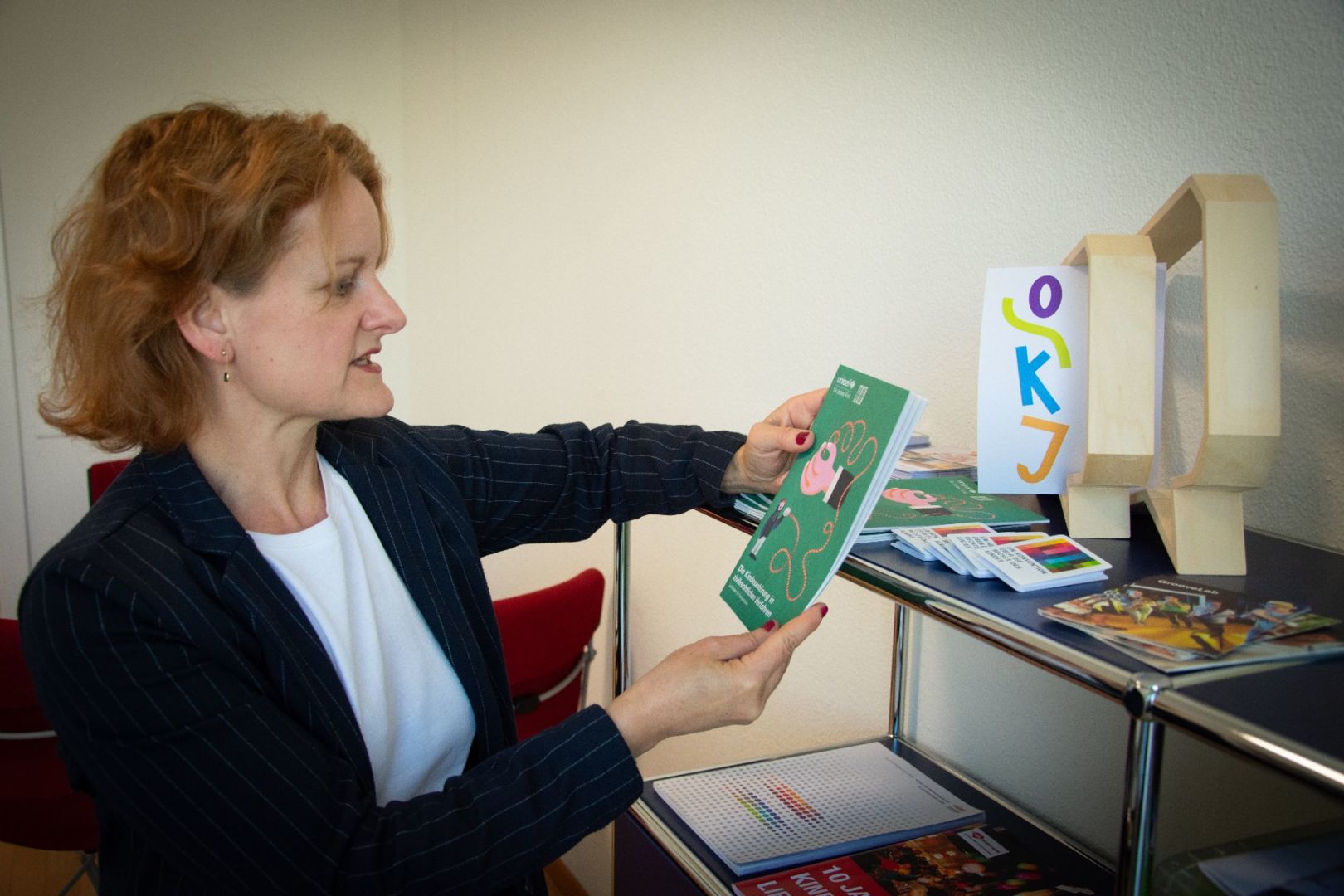Strengthening children's rights - insight into the work of the OSKJ
We spoke to Helen Konzett. She is the ombudsperson for children and young people in Liechtenstein and told us what her job is and what difficulties she has to deal with.
Helen Konzett, what is the most important task of the OSKJ?
"The core of my work is monitoring. I observe where I believe children's rights are not being sufficiently respected in Liechtenstein, analyze systematic problems and make recommendations for improvements. For example, if it turns out that children are often not heard in custody disputes, I examine how we can change this at a structural level. My aim is to provide impetus for long-term solutions so that children's rights are actually put into practice. Their implementation is not just the responsibility of the authorities. Everyone - adults and children alike - share responsibility for treating each other with care, respect and consideration."
Who can contact you?
"The ombudsman's office is open to all people and institutions in Liechtenstein who have questions or concerns about children's rights. I receive around 25 direct inquiries every year. It is often parents or institutions or children and young people themselves who contact me.
For example, parents get in touch if their child is unable to exercise their right to contact with both parents in a custody dispute. Or I am contacted when their opinions are not sufficiently heard on issues that strongly affect children and young people. I also receive concerns from families whose children with special needs are dependent on additional or other forms of state support. Sometimes children or young people come to me directly when they want to exercise their rights but encounter resistance from parents or the authorities."
How do you deal with such cases?
"I listen carefully to the concerns and may inspect the files and obtain information from all the authorities involved. In doing so, I check whether children's rights have actually been violated - because it is often the perception of those affected, which does not necessarily correspond to the legal situation. In such cases, mediation between the persons concerned and the relevant authorities can also be helpful. However, if I find that children's rights are not being respected, I point this out to the relevant authorities or make a complaint to the court. The OSKJ is an independent institution in accordance with Articles 96-98 of the Children and Youth Act - this means I am legally permitted to get involved in the work of the authorities or courts."
But your work goes beyond individual cases. How exactly?
"If I recognize that a particular problem doesn't just affect individual cases, but is of a structural nature, I carry out in-depth analyses - we call this monitoring. I create documentation and reports and make recommendations to ministries or authorities. The aim is to bring about comprehensive and long-term changes to strengthen children's rights. Because it is not enough to solve individual problems - it is important that causes are systematically addressed and remedied."
What other tasks does the OSKJ have?
"In addition to monitoring, public relations work is also key. I want to point out where children's rights need to be strengthened and raise awareness. This is done, for example, through position papers on topics such as children's mental health or through projects. At the moment, for example, I am particularly committed to a 'child-friendly justice system'. I am also involved in the Liechtenstein Children's Lobby. I am also a member of the UNICEF Switzerland and Liechtenstein "Child-friendly communities" committee. With this initiative, UNICEF recognizes Swiss and Liechtenstein municipalities that implement children's rights in a sustainable and participatory manner and awards them the "Child-friendly municipality" label. As a member of the expert commission, I accompany and evaluate the process of the participating Liechtenstein municipalities on behalf of UNICEF."
What can society do to further strengthen children's rights?
"Children's rights concern us all. Schools, authorities and society as a whole should take children and young people seriously and actively involve them in decisions. Children and young people can only develop to their full potential if their rights are respected. As an ombudsperson for children and young people, I am committed to ensuring that children's rights are effectively implemented in the everyday lives of children and young people and raise awareness among children, caregivers, authorities and the public."
Thank you very much for the insight into this valuable work.

